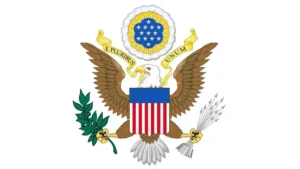Alexander Lukashenko has secured a seventh term as President of Belarus, extending his 30-year authoritarian rule. The election, held on January 26, 2025, reported Lukashenko winning nearly 87% of the vote, a result widely denounced as fraudulent by both domestic opposition and international observers.
Election Results and International Reactions
Official Outcome: The Central Election Commission announced Lukashenko’s victory with 86.8% of the vote, while opposition candidate Sviatlana Tsikhanouskaya received approximately 3%.
Opposition’s Stance: Tsikhanouskaya, in exile, labeled the election a “farce” and called for global leaders to reject the results.
Western Response: The European Union, the United States, and other Western nations condemned the election, citing human rights violations and the suppression of genuine political participation. They emphasized the lack of free and fair conditions and threatened new sanctions.
Russian and Chinese Support: In contrast, Russian President Vladimir Putin congratulated Lukashenko on his “confident victory,” and Chinese President Xi Jinping expressed a willingness to continue the friendship between China and Belarus.
Historical Context and Ongoing Repression
Suppression of Opposition: Since 1994, Lukashenko has maintained a firm grip on power, suppressing opposition and independent media. The 2020 election, which sparked massive protests, was followed by a harsh crackdown, leading to the imprisonment or exile of many political opponents.
Continued Repression: The current election reflects ongoing repression, with credible opposition figures barred from participating, many imprisoned or exiled. The regime has intensified its control over dissent, criminalizing even minor acts of opposition.
Implications for Belarus and International Relations
Regional Stability: Lukashenko’s extended rule and his alignment with Russia raise concerns about regional stability, especially in light of the ongoing conflict in Ukraine. The deployment of Russian nuclear weapons in Belarus further heightens tensions.
International Dynamics: The election results have deepened Belarus’s dependency on Russia, with Western nations expressing dismay and considering further sanctions. The international community remains divided, with some countries acknowledging the election and others condemning it as fraudulent.
Summary of the news
| Key Points | Details |
|---|---|
| Why in News | Alexander Lukashenko won his 7th term as Belarus President with 86.8% votes in a widely criticized election held on January 26, 2025. Opposition and Western nations rejected the results, calling it fraudulent. Russia and China endorsed the outcome. |
| Election Date | January 26, 2025 |
| Opposition Candidate | Sviatlana Tsikhanouskaya (in exile, called the election a “farce”) |
| Lukashenko’s Rule Since | 1994 |
| Vote Share | Lukashenko: 86.8%, Tsikhanouskaya: ~3% |
| Western Reaction | Election condemned as fraudulent; possible sanctions against Belarus. |
| Russian and Chinese Stance | Supported Lukashenko’s victory; congratulatory messages from Putin and Xi. |
| Regional Tensions | Belarus hosts Russian nuclear weapons; linked to the ongoing Ukraine conflict. |
| Belarus – Static Facts | Capital: Minsk; President: Alexander Lukashenko; Key Allies: Russia, China. |



 Trump Slaps 10% Global Tariff on All Imp...
Trump Slaps 10% Global Tariff on All Imp...
 U.S. Department of State Launches $200 M...
U.S. Department of State Launches $200 M...
 India Joins 100+ Nations in Strong Stand...
India Joins 100+ Nations in Strong Stand...








